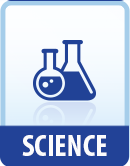|
This section contains 818 words (approx. 3 pages at 300 words per page) |

|
Enzymes are molecules that act as critical catalysts in biological systems. Catalysts are substances that increase the rate of chemical reactions without being consumed in the reaction. Without enzymes, many reactions would require higher levels of energy and higher temperatures than exist in biological systems. Enzymes are proteins that possess specific binding sites for other molecules (substrates). A series of weak binding interactions allow enzymes to accelerate reaction rates. Enzyme kinetics is the study of enzymatic reactions and mechanisms. Enzyme inhibitor studies have allowed researchers to develop therapies for the treatment of diseases, including AIDS.
French chemist Louis Pasteur (1822-1895) was an early investigator of enzyme action. Pasteur hypothesized that the conversion of sugar into alcohol by yeast was catalyzed by "ferments," which he thought could not be separated from living cells. In 1897, German biochemist Eduard Buchner (1860-1917) isolated the enzymes that catalyze the fermentation of alcohol from...
|
This section contains 818 words (approx. 3 pages at 300 words per page) |

|


